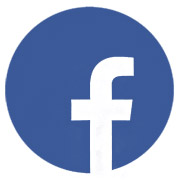
When a tweet goes out on Twitter that a user didn’t send, the concern is usually that the account has been hijacked by a malicious user. This week, however, three users on Twitter were surprised to find out that their user names and images had been used as examples in a marketing campaign created by Twitter itself.
Fake tweets attributed to three real Twitter accounts were used in a graphic on the Twitter advertising blog introducing the company’s TV ad targeting service. The graphic illustrated the metrics available to advertisers and used advertiser The Barista Bar as an example.
“This @baristabar ad is giving me the coffee shakes. Looks so good!” read one promotional tweet attributed to @subhash_tewari, for example.
“I wish I could make fancy lattes like in the @baristabar commercial” was another, attributed this time to @WilliamMazeo.
Twitter user @Neil_Gottlieb, meanwhile, was credited for a tweet that read, “What is the song in the new @baristabar commercial? I love it!!”
‘Never OK to Violate Privacy’
It wasn’t long before the three Twitter users represented in the graphic discovered that their accounts had been used without permission, and others on Twitter jumped in to echo their concern.
Twitter then reacted with a tweet of apology: “Hey @Neil_Gottlieb, @WilliamMazeo, @subash_tewari – so sorry about the confusion earlier today. We’re fixing the problem now.”
The response from @WilliamMazeo, “@TwitterAds -_- don’t do this again,” was soon joined by a number of other tweets, including a response from @Neil_Gottlieb: “Still nothing but an empty apology from Twitter for violating my privacy. ‘Confusion,’ they claim? By whom? Never OK to violate privacy.”
Twitter replaced the offending image with a new one containing the same sample tweets from three Twitter employees.
“We corrected the design mistake in the blog post’s imagery,” said Twitter spokesperson Will Stickney. “It’s our practice to use mocks for such posts, and we don’t have future plans to use actual users in such imagery on the ads blog.”
The company also added an update to its original blog post apologizing for its mistake.
“An earlier version of this blog post included an image with mock Tweets from real users of our platform,” wrote product manager Michael Fleischman. “This was not OK. Once we became aware of this mistake we took it down immediately. We deeply apologize to the three users included in the earlier images.”
Fictitious Advertiser?
Typically, companies use staffers or fictitious users to create such marketing examples. In fact, it is possible that @baristabar is a fictitious advertiser created by Twitter to test and demonstrate advertising on Twitter for the marketing and advertising department.
Most of the tweets for the account, which has tweets dating back to June 2011, are examples of Twitter marketing and advertising, with several tweets containing Twitter Cards.
On Wednesday morning the URL baristabarsf.com was listed under the Twitter account. Later in the afternoon the URL was removed. The website appears to be an empty WordPress page, with Twitter-like graphics including a header that says “twitter addict.”
A quick search for Barista Bar and Barista Bar San Francisco returned no results beyond the Twitter handle and baristabarsf.com URL.
‘A Situation That Is Not Good’
In any case, what may have simply been a testing program has now left Twitter with egg on its face.
“They’re trying to figure out ways to make money, so they’re probably experimenting with different things to see what they can get away with,” Joseph McElroy, head of marketing firm Corporate Performance Artists and organizer of the New York Inbound Marketing Professionals Meetup, told the E-Commerce Times.
“They’ve created a situation that is not good,” McElroy added.
‘Brands Make Mistakes’
Will it have a lasting effect on Twitter?
“Brands of all types make mistakes in marketing judgment from time to time,” David Libby, managing director of public relations and social media marketing firm 2pinz, told the E-Commerce Times.
“While Twitter may need to address this issue internally, I don’t think it will impact the social giant’s brand overall as this momentary gaffe is probably the result of a small team who had miscommunication on the development and potential outcomes of the campaign,” Libby added. “I wonder if Twitter has an internal ‘social media brand manager’?”
Indeed, “Twitter and social media are part of a practice called inbound marketing,” McElroy explained. “One of the key characteristics that make it work well is transparency by the company.
“When you violate transparency, you are violating inbound marketing,” he added. “You are asking for trouble.”












































Social Media
See all Social Media